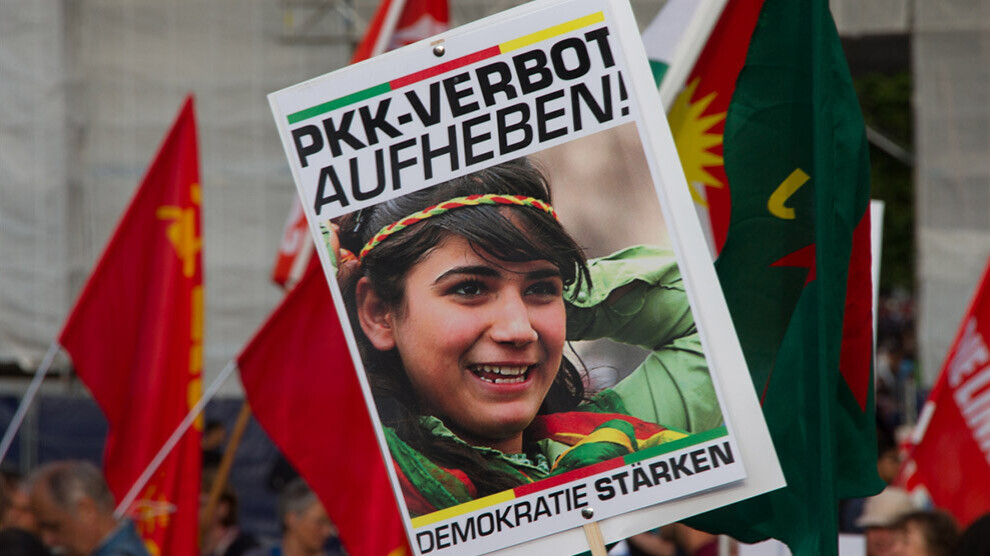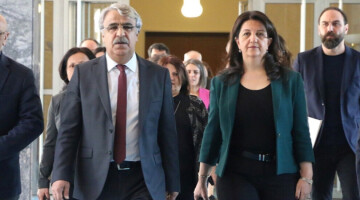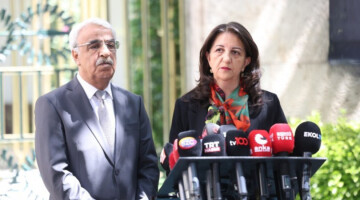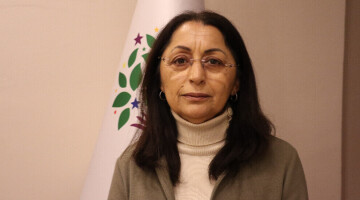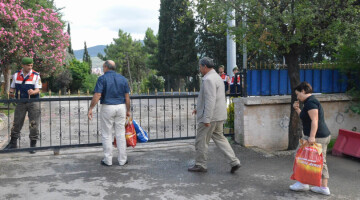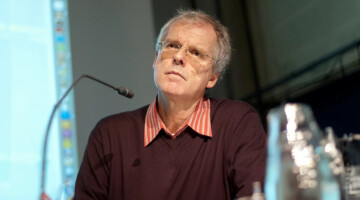On 26 November 1993, the then Federal Minister of the Interior, Manfred Kanther, ordered a ban on the activities of the Kurdistan Workers' Party (Partiya Karkerên Kurdistan, PKK) in Germany. Last May, the PKK applied for the lifting of this ban, arguing that since 1993 the actual circumstances had changed to such an extent that the maintenance of the ban could no longer be justified. The PKK stated that it did not commit any criminal offences in Germany and thus did not pose a threat to internal security. The ideas and aims of the organisation have also changed since then, it said, while Turkey, on the other hand, has developed into a regime that tramples democratic principles underfoot.
Six months have passed since the application was filed by lawyers Lukas Theune and Peer Stolle. Dr Theune, a lawyer from Berlin, commented on the status of the proceedings to the daily newspaper Yeni Özgür Politika.
Six months have passed since your application to the Federal Ministry of the Interior to lift the PKK ban. Have you received any feedback on this so far? What is the basic procedure in this regard and what is your expectation?
The Federal Ministry of the Interior, to whom we submitted the application, sadly refuses to communicate with us, they have not even confirmed the receipt of the application yet. It is extremely questionable in terms of the rule of law that we are not even told who is responsible for processing the application and when a decision can be expected.
In an administrative procedure based on the rule of law, an authority has three months to respond to an application or at least to state that it needs longer and why. Our patience is running out. If we do not hear something from the BMI soon, we can file an action for failure to act.
At the time of your application, the spokesperson of the Ministry of the Interior had stated that "the application has been rejected". Has there been any statement from the government on this issue since then? How do you assess the government's action? And what dimension does this have for Turkey?
So far, as far as we know, there has been no official statement from the Ministry of the Interior or the federal government as a whole. A journalist asked on the day we submitted the application and received this answer. At that time, however, no one was able to read our application and the justification. The Federal Government's absolute refusal to deal with this issue is unworthy of a constitutional state. It is to be hoped that it will not be guided in this by the Turkish government.
When do you think there will be a response to this? How will you proceed in case of a negative answer?
We hope and assume that a reply will come this year. If the ministry rejects our application, we will, of course, take legal action.
Does the PKK ban have any basis in today's conditions? On what main arguments did you base your motion?
The PKK ban is outdated. The PKK does not endanger internal security and does not commit crimes in Germany. Nor does it violate the idea of international understanding. Rather, it is Turkey that is trampling on international law by using chemical weapons and targeted killings by drones. The ban no longer has any basis.
What picture has the ban painted so far? If it is lifted, to what change and development will it contribute?
The PKK ban is a self-confirming machine. The ban marginalises Kurds and deprives them of their rights. Especially in Germany, with our own history of National Socialism, it is particularly important not to appear to discriminate against minorities because of their political opinions.
The lifting of the ban will be a symbol for a new policy of togetherness, of inclusion of all groups in society, and thus also open up dialogue opportunities again overall.
The anniversary of the PKK ban is approaching. What would you like to say on this occasion about the ban in Germany and the insistence on not removing the PKK from the "list of terrorist organisations"? Would you like to take this opportunity to make an appeal to the authority to which you submitted your application?
First of all, there is nothing to add to the request we have made to the Ministry of the Interior. We can only appeal to the federal government not to disregard the proudly proclaimed principles of the rule of law once again just because Turkey otherwise threatens to block Sweden's and Finland's accession to NATO. The federal government should itself behave according to the rule of law.
What responsibility does the public bear for the results of this motion?
The political commitment to lifting the ban is invaluable. The end of the criminalisation of the Kurds in Germany is demanded by a multitude of initiatives, groups and individuals. All of them together should raise their voices now.

